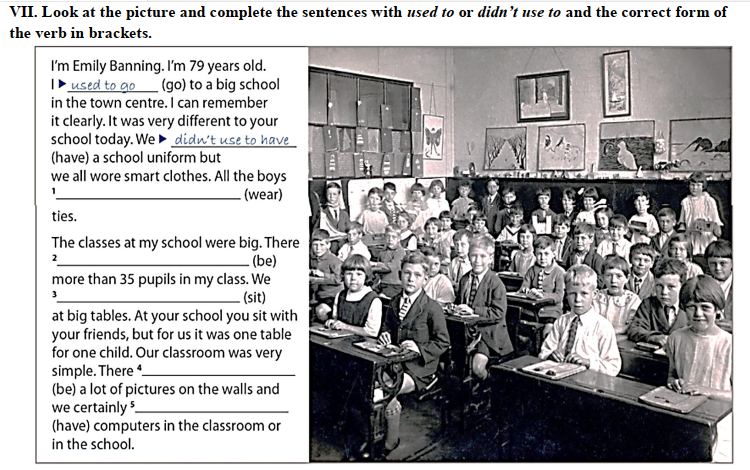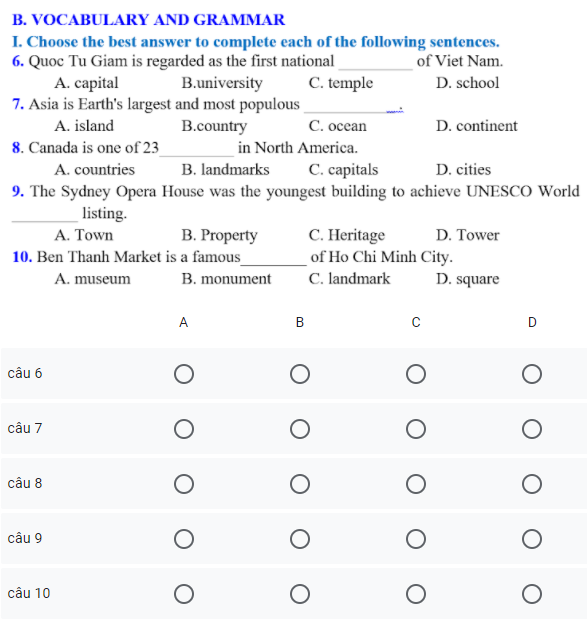
Hãy nhập câu hỏi của bạn vào đây, nếu là tài khoản VIP, bạn sẽ được ưu tiên trả lời.





Đây mới được gọi là ngắn thật sự
By 2030, robots will be able to play tennis. It will be able to play very well. Robots will be look after children or old people. It will be able to feed babies or pets. It will be able to feed careful. Robots will be able to talk with people but It can talk with people now. Robots won't be able to find and repair problems in our bodies. And robots won't be able to understand what web think. By 2030, I think that robots will be useful.
Tick giùm mình với nhé bạn
Getting policies right for issues like self-driving cars and unmanned aerial vehicles is tough, but doable. Latin America isn’t significantly behind the regulatory curve. Even in the U.S., only a few states have passed rules regulating self-driving vehicles, and the Federal Aviation Administration is just this year getting around to publishing regulations on civilian drone use. Once the region’s policymakers realize that these safety issues are less than a decade away (if not already here today), they will, hopefully, begin to act.
However, addressing the impact of robotics on the economy and the labor market is much more difficult. How does the region prepare for a technology revolution that will upend millions of jobs and dozens of industries vital to regional economies? How can Latin American countries prevent the inevitable wave of economic disruption from escalating into a crisis of political stability?
There is nothing Latin American governments can or should do to slow technology’s progress in their countries.
Instead, they need to find ways to embrace the positive aspects of robotics. Even if the above sections appear a bit pessimistic, the potential of self-driving cars to reshape urban transportation, of unmanned drones to remake the logistics industry, and of robotics in general to make industries more productive and to push the boundaries of what is technologically possible could provide great benefits to Latin America and the rest of the world.
Some of the policies needed to address advances in robotics are obvious. Nearly everyone agrees on the importance of building educated, innovative and adaptive workforces. However, the reality of building those workforces requires Latin American governments to make politically difficult choices. These include raising taxes to pay for investments in education from pre-kindergarten to post-graduate levels that will enable the next generation to succeed.
Additionally, while government investment in research and development is essential, innovation is really going to come from the bottom up. Policymakers need to streamline the process of building businesses and—perhaps more importantly—of creating cultural and legal frameworks in which innovative, technology-driven businesses can fail productively. Innovation requires entrepreneurs to take risks, but they are less likely to do so when harsh bankruptcy laws and a culture that punishes unsuccessful risk-takers in the business environment hold those entrepreneurs back.
On education, small-business creation, social safety nets, and regulations, the policy choices made in the next 10 years are going to determine whether Latin America embraces the benefits of robotics or faces a new lost decade, as it did in the 1980s. The economic transition to a greater use of automation and artificial intelligence is going to disrupt economies and create social tension, but some of the difficulties can be mitigated and some opportunities can be grasped if the region begins acting early.
The most important step is to get more of Latin America’s politicians, think tanks and civil society to discuss and debate the coming technology revolution. Unfortunately, many of the hemisphere’s political leaders spend more time discussing Cold-war era disputes than technology issues affecting the vast majority of Latin America today and into the coming decade.
The region’s politicians aren’t going to spend time discussing robotics until they feel pressure from voters and civil society.

I. Listen and fill one word in the blanks.
The population of the…..(1)……is growing. More …(2)….. need more food. More people …(3)…. more land. We ……(4)….. ….cutting down the …..(5)…. .Farmers are burning …(6)……..forests. They need …(7)…fields. We are destroying …(8)….. and animals. These …(9)…. animals are …( 10)….. danger.
II. Choose the word whose underlined part is pronounced differently from the others in each group.
1. A. garden B. yard C. market D. warm
2. A. aerobics B. carrot C. lemonade D. correct
3. A. armchair B. sandwich C. chocolate D. school
4. A. ahead B. white C. behind D. hungry
5. A. stadium B. accident C. finally D. animal
III. Choose the best answer from the four options (A or B, C, D) to complete each of the following sentences.
1. She is not doing ___________ in the garden, just walking with her dog.
A. anything B. nothing C. something D. one thing
2. It is twelve o’clock, Mai Anh. Let’s ___________home.
A. goes B. to go C. going D. go
3. My brother and I ___________ our grandmother next weekend.
A. visit B. am going to visit C. am visiting D. are going to visit
4. ___________ he plays the guitar!
A. What beautiful B. How beautifully C. How beautiful D. What beautifully
5. I don’t want much sugar in coffee. Just ___________, please.
A. a little B. little C. few D. a few
6. At an intersection, we must___________.
A. ride quickly B. go fast C. slow down D. run out
7. What’s___________ lunch? -There is some rice and some meat.
A. for B. in C. to D. at
8. Is there anything to drink? ~ I’m___________.
A. hungry B. tired C. thirsty D. cold
9. Look ___________ that strange man! He is looking ___________ Lan but she isn’t here.
A. for/ at B. at/ for C. at/ after D. at/ on
10. You are too fat. You shouldn’t eat much___________.
A. meat B. fruit C. fish D. vegetables
11. ___________ do people need more food? ~ Because there are more people.
A. What B. Why C. Where D. How
12. Where is your mother? ~ She is in the kitchen. She___________ dinner.
A. cooks B. cooking C. cooked D. is cooking
13. How___________ do you brush your teeth? ~ Three times a day.
A. many B. much C. usually D. often
14. ___________ straight across the road.
A. Don’t run B. Not run C. No running D. Can’t run
15. When it becomes hot, people often feel ___________.
A. hungry B. thirsty C. happy D. worried
16. Of the three students, Nga is ___________.
A. the best B. good C. better D. well
17. What is your favorite food? ~____________
A. My favorite food is orange juice. C. I like coffee and lemonlade.
B. Orange juice is my favorite food. D. I like chicken and fried fish.
18. They ___________ late for school.
A. never are B. don’t C. are never D. never
19. ___________ are you going to stay here? ~ For a week.
A. How often B. How long C. How many D. How far
20. Miss Trang always ___________ her own clothes.
A. does B. wants C. cooks D. makes







